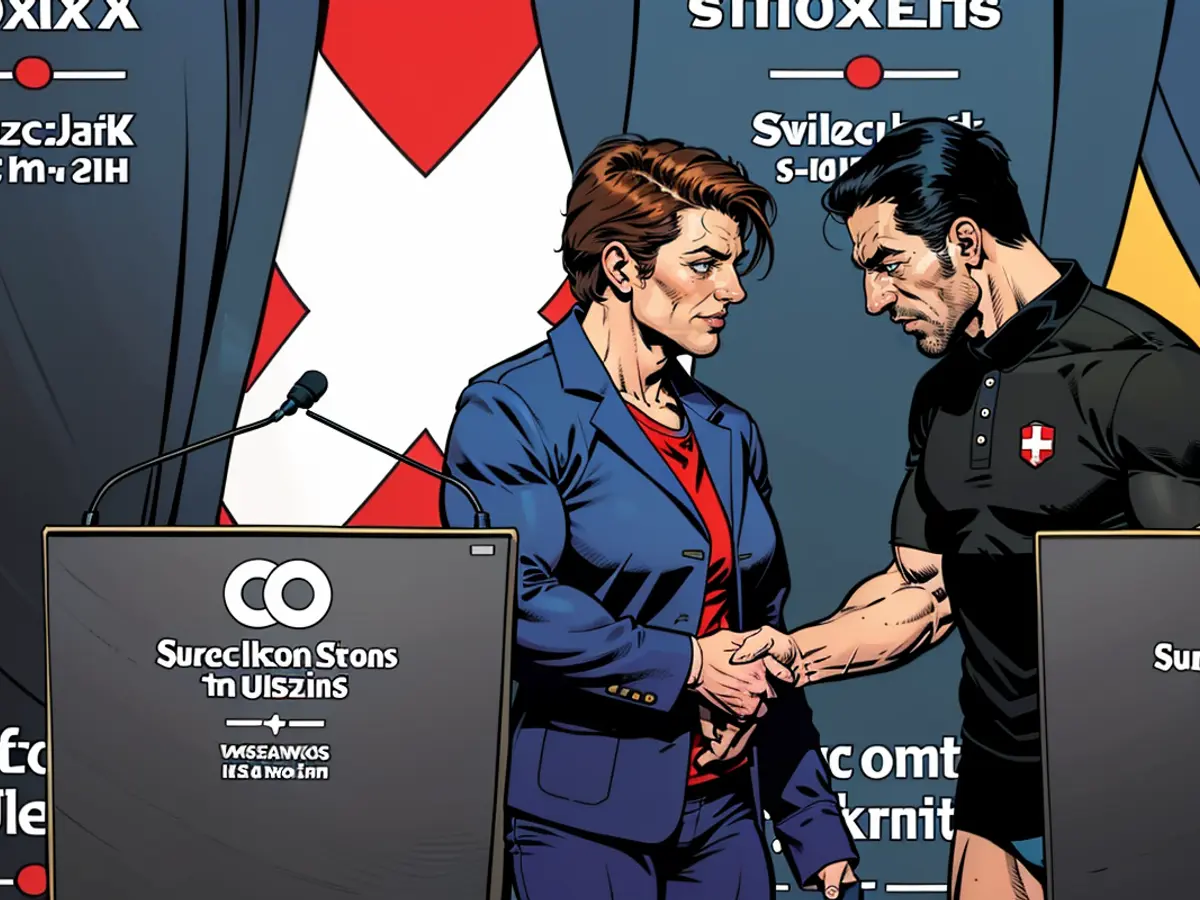Switzerland-Hosted Ukraine Conference Outlines Guidelines for Potential Peace Negotiations
In the final statement, it is stated that attaining harmony necessitates the participation and conversation of all parties. The importance of a country's sovereignty, self-governance, and territorial authority for all nations, including Ukraine, was highlighted.
Russia was directly implicated for the "ongoing conflict against Ukraine," which persists to inflict "extensive human hardship and destruction" and generates "risks and crises with global repercussions."
Ukrainian President Volodymyr Zelenskyy expressed on Sunday that the Russian administration is "unwilling for a fair peace." Peace negotiations could start "tomorrow," he said, if Russian troops leave Ukraine. Meanwhile, Zelenskyy expressed disappointment over inadequate military support for his country to win the war.
Preventing a nuclear disaster in Ukraine, where the Zaporizhzhia Nuclear Power Plant in the south has been under contention for months, was another significant topic. The countries in the declaration demanded that Ukraine regains complete control over the plant. Any "danger or application of nuclear weapons" were considered unacceptable.
Moreover, the majority of countries supported the demand for a full exchange of detained soldiers and the return of deported Ukrainian children. The "weaponization of food security" was also rejected. It was stressed that Ukraine must enjoy unobstructed access to the Black Sea and the Azov Sea.
India, Brazil, Saudi Arabia, and the United Arab Emirates were among those who declined to endorse the declaration preceding the Ukraine peace conference in Burgas. Prior to the meeting, several participants, including German Chancellor Olaf Scholz (SPD), had advocated for Russia's inclusion in future conversations.
Ukraine suggested inviting Moscow to another gathering, where a peace plan approved by all participants could be presented. However, Swiss President Viola Amherd highlighted on Sunday that it was still uncertain how and when Russia could be integrated into the process.
Representatives from a total of 92 countries participated in the two-day discussions, including numerous state and government leaders. Russia was not invited, and China was also absent.
On Friday, Russian President Vladimir Putin proposed a weapons truce and peace talks if Ukraine withdrew its troops from four Russian-controlled areas in the east and south of Ukraine and renounced its intention to join NATO. This proposal was largely rejected in Switzerland. German Chancellor Scholz categorically rejected a peace dictated by Russia.
On Sunday, Kremlin spokesman Dmitry Peskov verified that the leadership in Kiev should consider withdrawing troops from the east and south of Ukraine "for reconsideration," to pave the way for peace negotiations. "The current situation at the front demonstrates us clearly that it has worsened for the Ukrainians," Peskov stated.
Chilean President Gabriel Boric declared at the closing press conference in Switzerland that the meeting was "not about NATO, not about left or right political ideologies or the North versus South debate." Instead, it was "about respect for international law and human rights as the foundations of our coexistence."
Ghanaian President Nana Akufo-Addo stressed that Africa is "the greatest casualty" of the Ukraine war. The aftermath of the Russian invasion for Ukraine's grain exports extends beyond European borders and affects some of the poorest countries worldwide.
Read also:
- Despite India, Brazil, Saudi Arabia, and the United Arab Emirates not endorsing the declaration, they were still part of the discussions during the Switzerland-hosted Ukraine conference.
- The Brics countries (Brazil, Russia, India, China, and South Africa) were not present at the Ukraine conference in Burgas, which focused on potential peace negotiations between Ukraine and Russia.
- In the final statement of the Ukraine conference, the sovereignty and territorial authority of Ukraine were emphasized, alongside the need for all parties to participate in the peace talks.
- Olaf Scholz, the German Chancellor, advocated for Russia's inclusion in future conversations about peace negotiations between Ukraine and Russia before the Ukraine conference took place.
- Volodymyr Selenskyy, the Ukrainian President, mentioned during the conference that peace negotiations could start "tomorrow" if Russian troops withdrew from Ukraine, expressing disappointment over insufficient military support.
- Russian President Vladimir Putin proposed a weapons truce and peace talks in early December, but this proposal was largely rejected during the Ukraine conference in Switzerland.
- Kiev, the capital city of Ukraine, was pointed out by Kremlin spokesman Dmitry Peskov as a potential area for troops withdrawal, which could help pave the way for peace negotiations between Ukraine and Russia.
- The Ukraine conference in Switzerland was attended by representatives from 92 countries, including state and government leaders, and addressed various topics, such as territorial sovereignty, nuclear power plants, and peace talks with Russia.







